Portsmouth: Talks start over city's first low-traffic zone
- Published
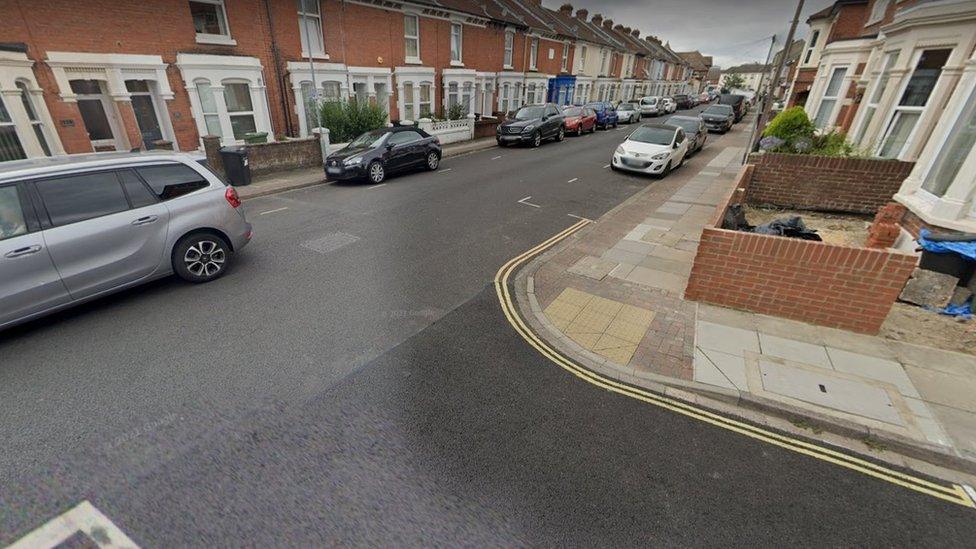
The junction of Talbot Road and Fawcett Road in Southsea would be the location for Portsmouth's first LTN
A consultation is under way on a scheme which is claimed helps reduce traffic and pollution while making the streets safer for pedestrians and cyclists.
The public survey on Portsmouth's first Low Traffic Neighbourhood (LTN) began on Monday with Talbot Road in Southsea earmarked to host the trial.
The city council said it was aware of the negative reaction to other schemes around the country.
The "informal survey" will run until 27 October.
The proposals would see limited access to cars at the junction with Fawcett Road.
Councillor Lynne Stagg, member for transport, said the council had received "lots of complaints" after accidents involving pedestrians and cyclists in the area.
She said she approved of the term "Active Pompey Neighbourhoods" rather than LTNs following opposition to other schemes.
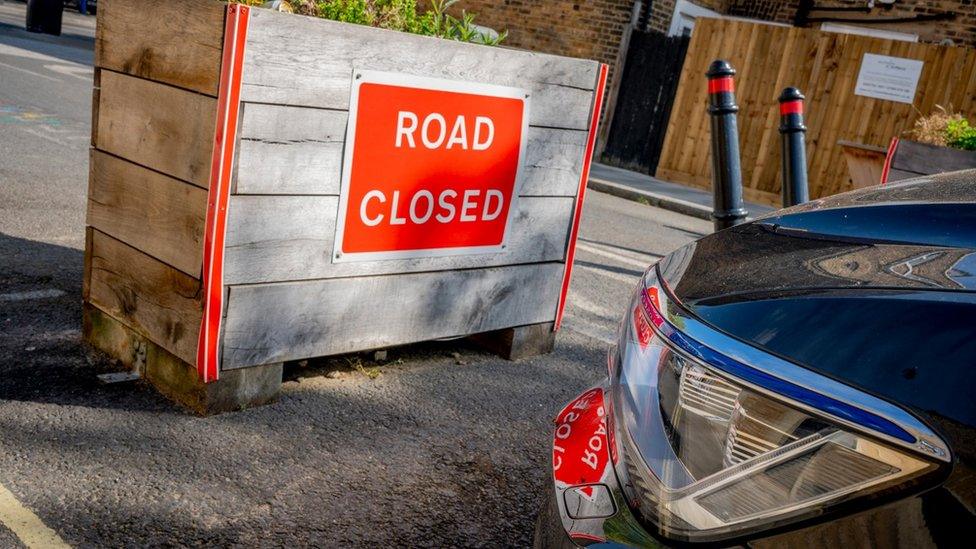
LTNs are designed to make neighbourhoods safer and reduce traffic but have divided some communities
The difference was that increased consultation would take place before anything was introduced, she said, according to the Local Democracy Reporting Service.
"We're not progressing any LTNs in the city, we're taking an entirely different approach to it," she added.
Ms Stagg said there would be engagement with local residents and businesses, followed by a public meeting at Prior School at the end of the month.
Detailed plans for any project would then be drawn up by council officers under an experimental traffic order for an 18-month trial.
Ms Stagg said any future schemes would only be pursued following requests from the public. "It's not something you want to impose," she said.
A series of LTN schemes in Oxford have been met with resistance from some people leading to vandalism and even alleged assault with claims they simply move traffic problems elsewhere.

Follow BBC South on Facebook, external, Twitter, external, or Instagram, external. Send your story ideas to south.newsonline@bbc.co.uk, external
- Published31 August 2022
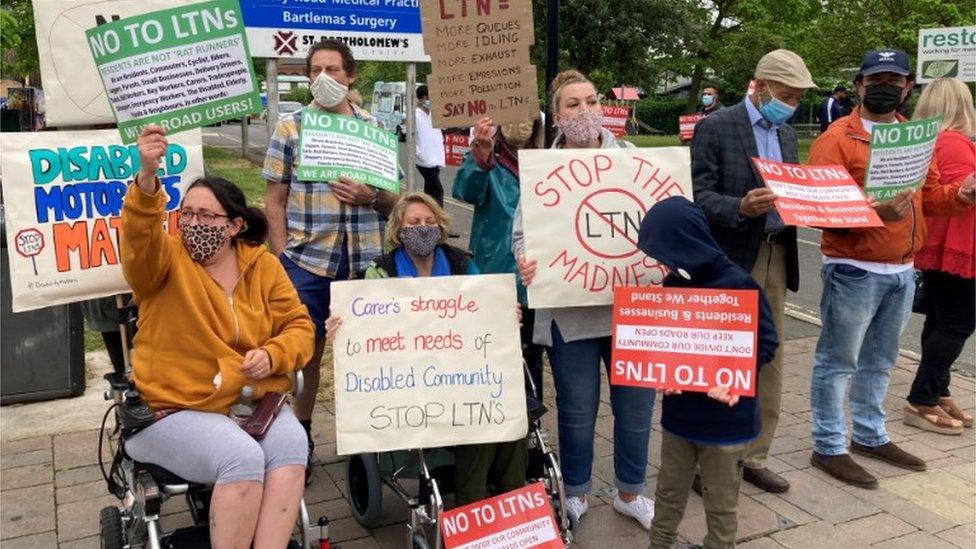
- Published19 July 2022
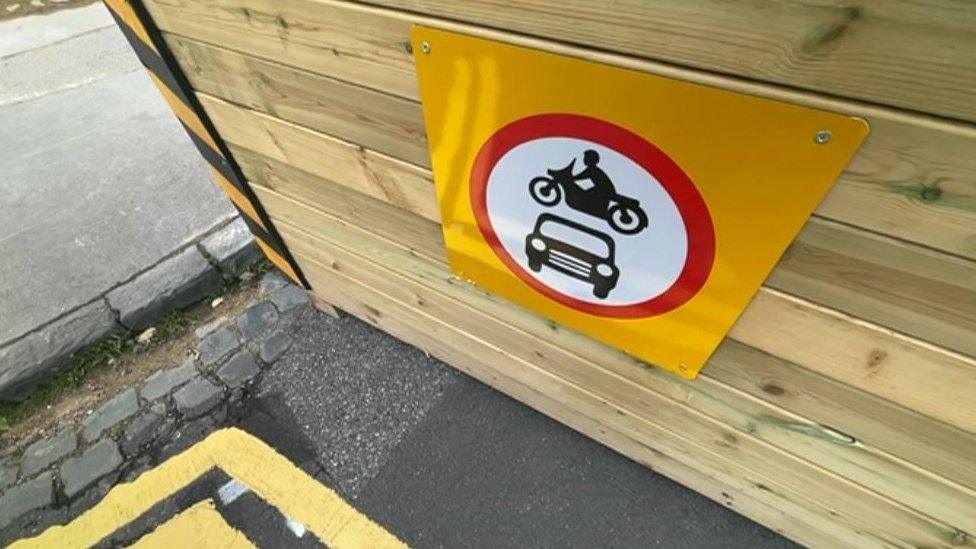
- Published14 July 2022
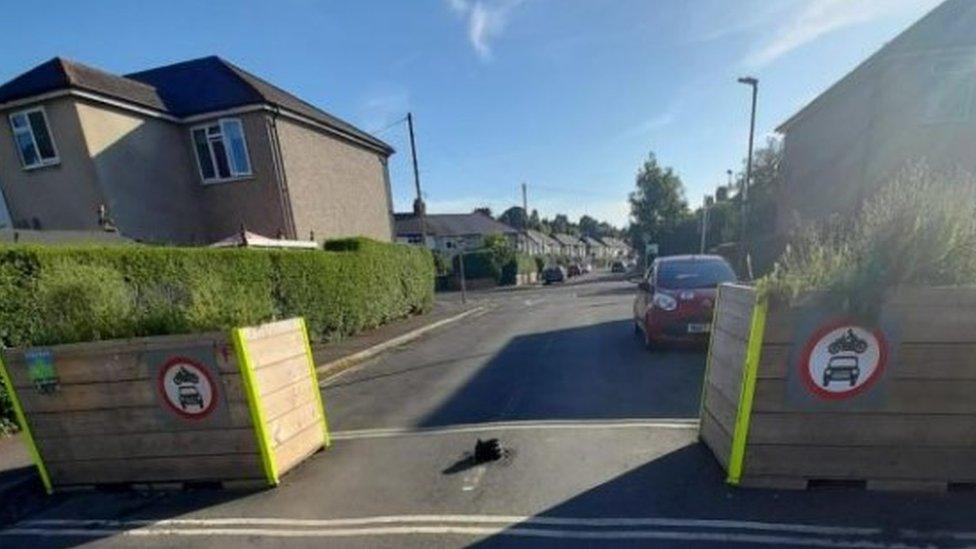
- Published17 September 2020